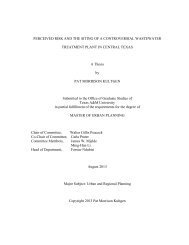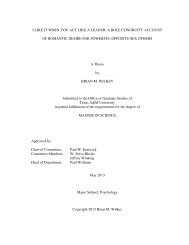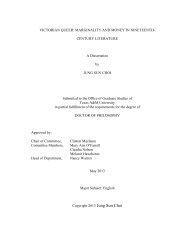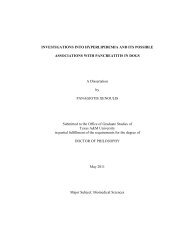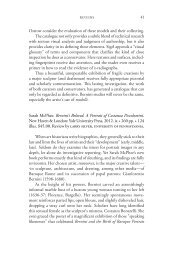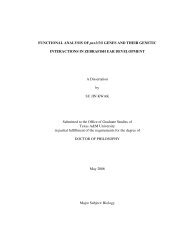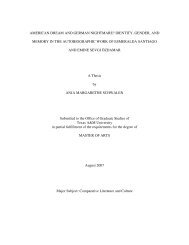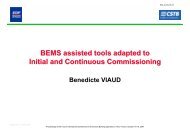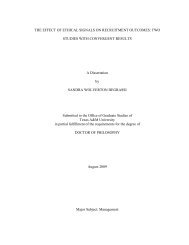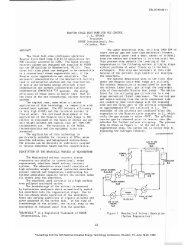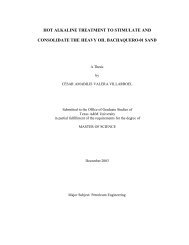A Dissertation by GRACE HUI-CHIN LIN Submitted to the Office of ...
A Dissertation by GRACE HUI-CHIN LIN Submitted to the Office of ...
A Dissertation by GRACE HUI-CHIN LIN Submitted to the Office of ...
You also want an ePaper? Increase the reach of your titles
YUMPU automatically turns print PDFs into web optimized ePapers that Google loves.
at <strong>the</strong> students’ after-class time, instead <strong>of</strong> in-class time. In examining <strong>the</strong><br />
respondents’ data, <strong>the</strong> researcher assigned each student a mutually agreeable<br />
pseudonym (code name) as follows: Sung Ru, Cheng Chih, Jiun Sheng, Jian Guo,<br />
Tien Long, Ling Mei, and Pei Pei.<br />
IRB Consent Form<br />
Denzin and Lincoln (1994) elucidated that written documents and records<br />
needed <strong>to</strong> be well handled in order <strong>to</strong> ensure <strong>the</strong> participants’ confidentiality:<br />
“Researchers may <strong>of</strong>ten be able <strong>to</strong> get access <strong>to</strong> documents, whereas access <strong>to</strong><br />
records may be restricted <strong>by</strong> laws regarding privacy, confidentiality and anonymity”<br />
(p. 393). For <strong>the</strong> document confidentiality issue, this study was conducted under<br />
Texas A & M’s research procedure. Before <strong>the</strong> processes <strong>of</strong> training and interviewing,<br />
<strong>the</strong> students were requested <strong>to</strong> read and sign a consent form, in compliance with <strong>the</strong><br />
research regulation <strong>of</strong> Texas A & M’s Institutional Review Board. All 24 participants<br />
had read and signed <strong>the</strong> consent form that explicitly addressed how <strong>the</strong>ir privacy<br />
would be preserved. In this consent form, students were notified where, <strong>by</strong> whom<br />
and how <strong>the</strong> videotape would be retained and destructed.<br />
Interview in Mo<strong>the</strong>r Tongue<br />
The seven respondents were invited <strong>to</strong> have a discussion in <strong>the</strong>ir native<br />
languages, whe<strong>the</strong>r in Taiwanese or in Mandarin. They also were allowed <strong>to</strong> speak in<br />
English if <strong>the</strong>y could express <strong>the</strong>ir feelings well in English. In both rounds <strong>of</strong><br />
interviews <strong>of</strong> this study, <strong>the</strong> students had been advised <strong>to</strong> converse freely in <strong>the</strong>ir<br />
mo<strong>the</strong>r <strong>to</strong>ngues in order <strong>to</strong> express <strong>the</strong>ir perceptions more confidently and precisely.<br />
The researcher anticipated that <strong>the</strong> seven volunteers would present <strong>the</strong>ir perceptions<br />
precisely <strong>by</strong> using <strong>the</strong>ir mo<strong>the</strong>r <strong>to</strong>ngues. The freedom and <strong>the</strong> confidentiality given <strong>to</strong><br />
64



